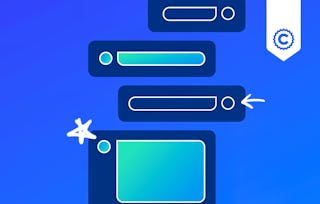NVIDIA: Large Language Models and Generative AI Deployment is the fourth course of the Exam Prep (NCA-GENL): NVIDIA-Certified Generative AI LLMs - Associate Specialization. This course offers a comprehensive understanding of Large Language Models (LLMs) and Generative AI deployment, combining theoretical insights with practical skills.

NVIDIA: Large Language Models and Generative AI Deployment

NVIDIA: Large Language Models and Generative AI Deployment
This course is part of Exam Prep (NCA-GENL): NVIDIA-Certified Generative AI LLMs Specialization

Instructor: Whizlabs Instructor
1,552 already enrolled
Included with
Recommended experience
What you'll learn
Understand the foundational concepts of LLMs, including NLP and training data.
Explore model optimization techniques like loss functions, alignment, and PEFT.
Implement deployment strategies for LLMs and monitor performance using ONNX.
Skills you'll gain
Details to know

Add to your LinkedIn profile
6 assignments
See how employees at top companies are mastering in-demand skills

Build your subject-matter expertise
- Learn new concepts from industry experts
- Gain a foundational understanding of a subject or tool
- Develop job-relevant skills with hands-on projects
- Earn a shareable career certificate

There are 3 modules in this course
Welcome to Week 1 of the NVIDIA: Large Language Models and Generative AI Deployment course. This week, we will begin by introducing you to Large Language Models (LLMs) and explore their significance in Natural Language Processing (NLP). We will also demonstrate how LLMs are applied to various NLP tasks using HuggingFace. Next, we will dive into the concept of Generative AI models and their components. We’ll cover the importance of training data for LLMs and best practices for data cleaning. By the end of this week, you will have a solid understanding of LLMs, their applications, and the essential processes involved in training them.
What's included
6 videos2 readings2 assignments1 discussion prompt
Welcome to Week 2 of the NVIDIA: Large Language Models and Generative AI Deployment course. This week, we will cover the essentials of training and optimizing Large Language Models (LLMs). We will begin by exploring the various learning methods, including Few-shot, Zero-shot, Instruction Tuning, and Reinforcement Learning with Human Feedback (RLHF). Next, we will delve into loss functions used in LLMs and techniques for aligning models effectively. We will also cover evaluation metrics such as Perplexity and discuss the critical role of humans in evaluating LLMs. Additionally, we will examine the role of GPUs in training models and explore LLM fine-tuning techniques like Prompt Tuning and Parameter Efficient Fine-Tuning (PEFT). By the end of the week, you will have a solid understanding of how to train, optimize, and evaluate LLMs for real-world applications.
What's included
9 videos1 reading2 assignments
Welcome to Week 3 of the NVIDIA: Large Language Models and Generative AI Deployment course. This week, we will cover essential strategies for deploying Large Language Models (LLMs) in real-world applications. We will start by exploring various deployment strategies and how to choose the right one for different scenarios. Next, we will introduce ONNX as a tool for unifying the deep learning landscape, and demonstrate how to convert deep learning models using ONNX. We will also focus on monitoring LLMs in production, covering best practices for ensuring their performance and reliability. Finally, we will dive into the NVIDIA ecosystem and how it supports LLM deployment, enhancing model efficiency and scalability. By the end of the week, you will have a clear understanding of LLM deployment and monitoring techniques.
What's included
5 videos3 readings2 assignments
Earn a career certificate
Add this credential to your LinkedIn profile, resume, or CV. Share it on social media and in your performance review.
Instructor

Offered by
Explore more from Software Development
 Status: Free Trial
Status: Free Trial Status: Free Trial
Status: Free Trial Status: Free Trial
Status: Free Trial Status: Free Trial
Status: Free Trial
Why people choose Coursera for their career

Felipe M.

Jennifer J.

Larry W.

Chaitanya A.

Open new doors with Coursera Plus
Unlimited access to 10,000+ world-class courses, hands-on projects, and job-ready certificate programs - all included in your subscription
Advance your career with an online degree
Earn a degree from world-class universities - 100% online
Join over 3,400 global companies that choose Coursera for Business
Upskill your employees to excel in the digital economy
Frequently asked questions
To access the course materials, assignments and to earn a Certificate, you will need to purchase the Certificate experience when you enroll in a course. You can try a Free Trial instead, or apply for Financial Aid. The course may offer 'Full Course, No Certificate' instead. This option lets you see all course materials, submit required assessments, and get a final grade. This also means that you will not be able to purchase a Certificate experience.
When you enroll in the course, you get access to all of the courses in the Specialization, and you earn a certificate when you complete the work. Your electronic Certificate will be added to your Accomplishments page - from there, you can print your Certificate or add it to your LinkedIn profile.
Yes. In select learning programs, you can apply for financial aid or a scholarship if you can’t afford the enrollment fee. If fin aid or scholarship is available for your learning program selection, you’ll find a link to apply on the description page.
More questions
Financial aid available,

